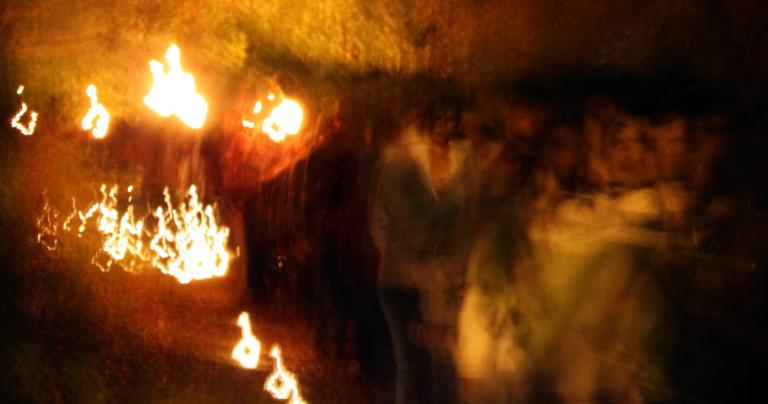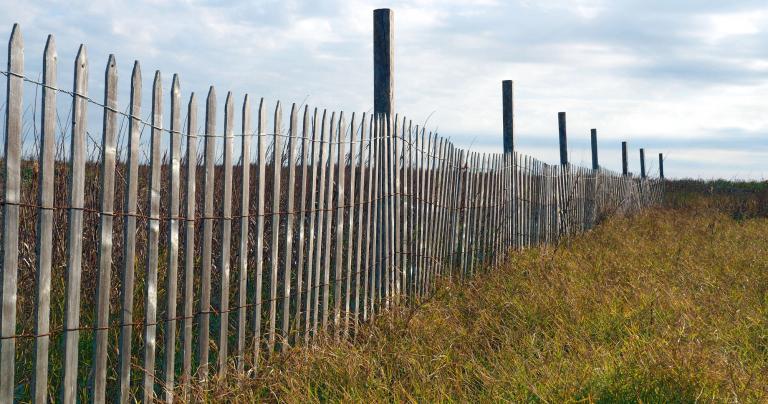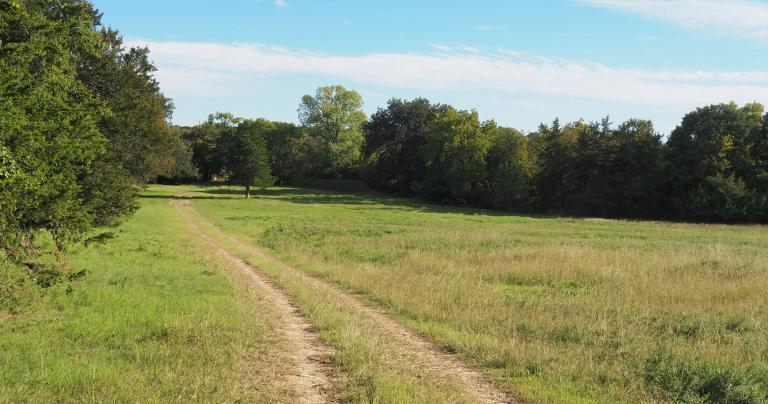Last week I put out a call for another round of Conversations Under the Oaks. I got a nice assortment of questions and I’ll get to them all sooner or later. But when I saw this one I knew it needed to be first, and I knew it needed to be its own post.
What is the most effective means of dealing with toxic or abusive members of a community?
That’s a really tough question. There are no simple answers and there certainly aren’t any easy answers. But it’s a question all of us need to consider, because sooner or later we’re all going to have to deal with someone who’s toxic or abusive or both.
I’ve been in leadership roles in the Pagan community for 15 years – I’ve seen my share of this. I haven’t always responded as well as I wish I had. But I’ve learned a few things along the way.
Prevention works better than reaction
If you wait till someone in your community starts behaving abusively, it’s too late. You still have to act, and the work you do will – if done right – help prevent reoccurrences, but at that point the damage is done. The best time to deal with toxic and abusive people is now, before you have any.
Never think your community is immune – it isn’t. A new person will wander in who looks like they’d be a great addition and by the time you figure out how messed up they are they will have already harmed multiple people. Even a closed group that heavily vets potential new members will make mistakes in its evaluations. And sometimes people who’ve been good and trustworthy friends suddenly change… or you find out they’ve been hiding deep secrets all along.
Accept that you will have to deal with bad behavior at the least and outright abuse at the worst. Then figure out how to discourage it, and how to handle it when it happens.
Set clear boundaries
In general, Pagans don’t like boundaries. We don’t like institutions, or processes, or anything that even remotely resembles rules. Interfering with someone else’s free will is the closest thing we have to a mortal sin. We want everyone to be free to be who and what they really are.
Except who and what some people really are is toxic and abusive.
Boundaries are necessary. Start with policies on conduct. The Coru Cathubodua Morrigan Priesthood has a good example on their website. In part, it says:
Everyone should feel and be safe… We have an individual and shared responsibility to guard against behaviors that demean, threaten, or otherwise harm individuals. Because these actions not only harm individuals, they impact and harm our community as a whole. We will not tolerate prejudice and discrimination. Unsafe behaviors and words, including but not limited to racism, sexism, ageism, classism, transphobia, homophobia, xenophobia, ethnicism, sizeism, ableism and other prejudicial and discriminatory behaviors will not be tolerated…
We will not tolerate harassment and abuse. Transgressions in the form of verbal, physical, and/or sexual harassment, abuse, and assault, as well as violations of consent and personal boundaries are grounds for removal or banning from Coru-held spaces.
Policies like this should be written, debated, approved by a roll call vote, posted, and publicized. And then enforced.
Build a healthy culture
Policies that state what you won’t tolerate are necessary. But the culture of your community is built on what you do tolerate – and on what you encourage and celebrate.
How do your members talk to each other? Are they genuinely concerned with their well-being or do they snipe at each other? How to you care for your guests? Do you demonstrate the Pagan value of hospitality?
The number one rule of building a healthy culture is “don’t feed drama!” Paganism tends to attract people who want to make everything about themselves. You can’t stop them from walking through your door, but you can control how you respond.
The best way to avoid feeding drama is to keep the focus on your core mission. At Denton CUUPS our core mission is providing a safe and welcoming space for practicing Paganism in a UU context in our local community. Mainly that means hosting open rituals on the eight high days. We want to be sensitive to the needs of our members and friends, but nothing takes priority over facilitating our public rituals.
Newcomers will see what you do. Either their needs and desires will match up with your priorities, or they’ll go somewhere else.
Everyone’s problem – leaders’ affirmative duty
Even if you keep your focus on your core mission and you build a healthy culture, sooner or later something’s going to happen. When it does, it’s going to be uncomfortable, unpleasant, and probably embarrassing. Everybody’s going to wish it would just go away. It won’t.
Behavior that is offensive, manipulative, abusive, or just plain rude is everyone’s problem – because it affects everyone in the community. Everyone has the responsibility to deal with it, but leaders – especially office holders – have an affirmative duty to act. That means it’s your responsibility to act, even if no one else does.
And the sooner you act the better.
Pay attention
It’s not like your elder teacher is going to walk up and announce “oh, by the way, I’ll be pressuring the new members to have sex with me next Tuesday night.” You can’t expect vulnerable people to report every act of offensive behavior. You have to pay attention.
Was that touching a demonstration of affection between friends, or was it a sexual advance? Why did a visitor suddenly get quiet and then leave? Why does your treasurer always make excuses when someone asks to see the books?
Pay attention. Ask questions. Ask privately at first. If the answers satisfy you, you’ve fulfilled your responsibility. If they don’t, keep asking.
If you still can’t get a good answer, or if the answers you get lead you to believe something wrong has happened, your community needs a formal investigation.
Have a process
When your community creates its conduct policy, it should also come up with a process for investigating and resolving charges of offensive or abusive behavior. Such a policy should clearly state its priorities, in order:
- Protection of victims and vulnerable people.
- Due process, fairness, and justice for both accusers and the accused.
- Reconciliation and restoration of right relationship.
The policy should explicitly state that avoiding unfavorable publicity is a lower priority than any of the above. Learn from the Catholic clergy sex abuse scandals: attempting a coverup is not only morally abhorrent, in the end it makes things worse for the community.
An investigation must never be left to only one person, and great care must be taken to eliminate conflicts of interest. If everybody has to recuse themselves, that means you have to call in outside help to handle the investigation. That’s hard – so be it.
Commit to finding the truth! That means you never dismiss a complaint by saying “I’m sure they didn’t mean it that way.” It also means you never simply “believe victims.” Instead, you treat people who make charges with compassion and respect, and with the presumption that there is at least some truth in what they say. Then you listen, ask questions, and then listen some more.
Know your limits
You are not a trained investigator. Even if you are, you may have a conflict of interest. While intelligent people who are committed to finding the truth and doing what’s right can usually handle ordinary levels of offensive behavior, conduct that is or may be criminal is another matter.
Given the state of law enforcement in this country, I am reluctant to advise anyone to call the police. But if someone’s life or health is at stake, you may have no other choice.
If you are considered clergy, it is likely you are a mandatory reporter. That means if you have reason to believe that children, elderly, or other vulnerable people are being abused or neglected, you have a legal obligation to report it to the civil authorities. You can go to jail if you don’t.
If you reach your limits as an investigator – whether for skills, conflict of interest, or level of the charge – you must hand it off to someone who can complete it, even if that means airing your dirty laundry in public.
Act on the findings
It isn’t enough to find the truth. You also have to act on the truth.
Sometimes that means having a hard conversation with a friend. Other times it means telling someone you’ve stood in circle with for years that they’re no longer welcome in your group. Occasionally that means turning someone over to the legal process.
None of those things are easy or pleasant. But if we are committed to our Pagan virtues and values, we must ensure that toxic and abusive behavior is stopped, no matter what the cost.
Weeding the garden
Not every toxic person rises to a level of near-criminal actions that require formal investigation and adjudication. Some toxic behavior is far more subtle: constant criticism, dragging important conversations off topic, and failure to follow through on commitments. There are always excuses – some of them may actually be valid. But over time, people who are “weeds” distract the community from its mission and they make it less welcoming to others – usually to make themselves feel more important.
As herbalists like to remind us, a weed is just a plant that’s in a place where it’s undesirable for humans. Someone who’s a weed isn’t necessarily a bad person, but they’re harmful where they are. If your garden is to grow, the weeds need to be removed.
This article Weeding the Garden on the ADF website goes into more detail about this, including what to do about it. Here’s an excerpt:
Just because a given person causes a problem or two doesn’t mean they aren’t worth having in your group. But when someone has consistent or serious problems that interfere with the smooth functioning of the group, you have to ask yourself if they are worth the aggravation. Most people will be. But some people will be more trouble than they are worth. These are the ones that I am calling “weeds”.
To quote a certain sci-fi movie “the needs of the many outweigh the needs of the few, or the one.” The community is more important than any of its individual members. If someone is continually disruptive, they need to go.
Our communities are only as good as we are
A community – whether small or large – is a living entity. But that entity is composed of many individuals, and each of them have an impact on the community as a whole. The ethics and values of its members will become the ethics and values of the community.
Do we value hospitality, compassion, and the sovereignty of each and every person? Will we draw necessary boundaries, and then enforce them? Are we willing to take accusations of abuse seriously, dig into them, and uncover the truth?
Are we willing to hold our friends and neighbors accountable for living the way we say we want to live?
Are we willing to hold ourselves accountable?
There have been times when I’ve been proud of the way I’ve responded to the challenges of toxic and abusive people. And there have been times when I didn’t do enough. I’m committed to doing better in the future, whether I’m an office holder, an informal leader, or an ordinary member.
We can’t stop toxic people from coming into our communities. We can deal with them promptly and firmly, and make our spiritual homes places where even the most vulnerable can be safe.
And we must.
Because when emotionally healthy people encounter offensive or abusive behavior and nobody does anything about it, they vote with their feet – they leave. That leaves only unhealthy people in the community, and the life expectancy of an unhealthy community isn’t very long.
















